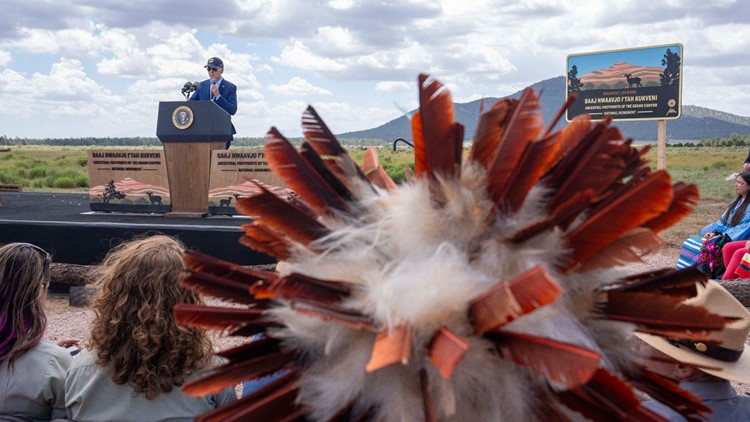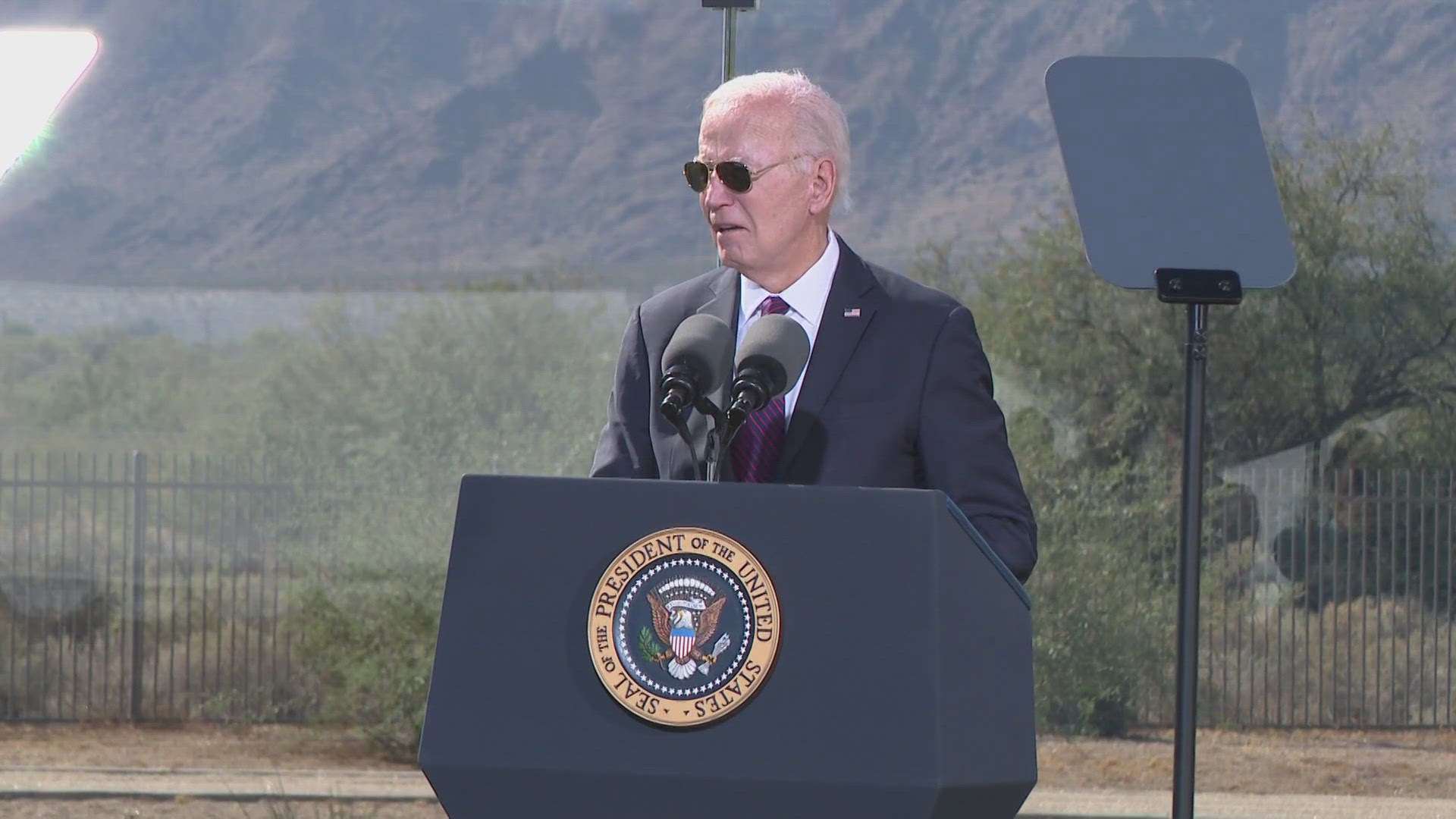PHOENIX — Arizona Treasurer Kimberly Yee is joining a lawsuit against the Biden Administration for what state Republicans call a "violation of the Antiquities Act," with the creation of the Baaj Nwaavjo I’tah Kukveni-Ancestral Footprints of the Grand Canyon National Monument last year.
Under the new designation, mining is off-limits in the area where roughly 3,000 known cultural and historical sites fall within the monument's boundaries.
The Arizona State Senate Republican Caucus in September of last year announced that it planned to file suit against the Biden Administration by the end of 2023 or early 2024, claiming that a "fact-finding phase is currently underway."
Yee, as the state land surveyor-general, joined that lawsuit.
“We must protect the value of state trust lands for the future of Arizona. This unlawful land grab by the Biden Administration will directly affect Arizona's economy and the livelihoods of our citizens,” Yee said in a news release. “The Federal Government needs to compensate the permanent school fund for the tens of thousands of trust land parcels left economically isolated by the stroke of the pen by President Biden. This big hand of government will hurt our K-12 education beneficiaries the most.”
RELATED: There are 3,000 known cultural and historic sites at Biden's new Grand Canyon national monument
The monument sets protection standards for 917,618 acres of land in three distinct locations north and south of the Grand Canyon. Tribal leaders in the area have pushed for the creation of such a monument for years.
Yee says the land is Bureau of Land Management land in Mohave and Coconino counties. In doing so, "[Biden] isolated tens of thousands of acres of state trust lands, causing economic harm to the beneficiaries, primarily K-12 education in Arizona," Yee said in the release.
"The monument designation prohibits further use and development of the BLM land which surrounds the state trust land, even though those lands are available for the mining of important natural resources, such as uranium, that financially benefit Arizona’s state and local governments and schools," the release says.
The complaint was filed Monday in the U.S. District Court for the District of Arizona.
A press release last year from the State Senate called the monument "nothing more than a publicity stunt" and said the mining restrictions would "further exacerbate our dependency on dangerous foreign nations for our energy supply."
Most of the mining that happens in the area is uranium mining. Nuclear energy accounts for roughly 20% of total annual U.S. electricity generation. Furthermore, domestic production of Uranium peaked at 43.7 million pounds produced in 1980.
The U.S. hasn't produced more than five million pounds of uranium in a year since 1997, according to the U.S. Energy Information Administration. Of the roughly 40.5 million pounds purchased by the U.S. in 2022, 27% came from Canada, 25% came from Kazakhstan, and 12% came from Russia.
The monument was created under the 1906 Antiquities Act, the same act that allowed for the creation of four similar monuments in Arizona by the Clinton Administration in 2000-2001. The monuments kept their status after a 2017 executive order from then-President Donald Trump forced a review.
>> Download the 12News app for the latest local breaking news straight to your phone.
Arizona Politics
Track all of our current updates with Arizona politics on our 12News YouTube channel. Subscribe for updates on all of our new uploads.



